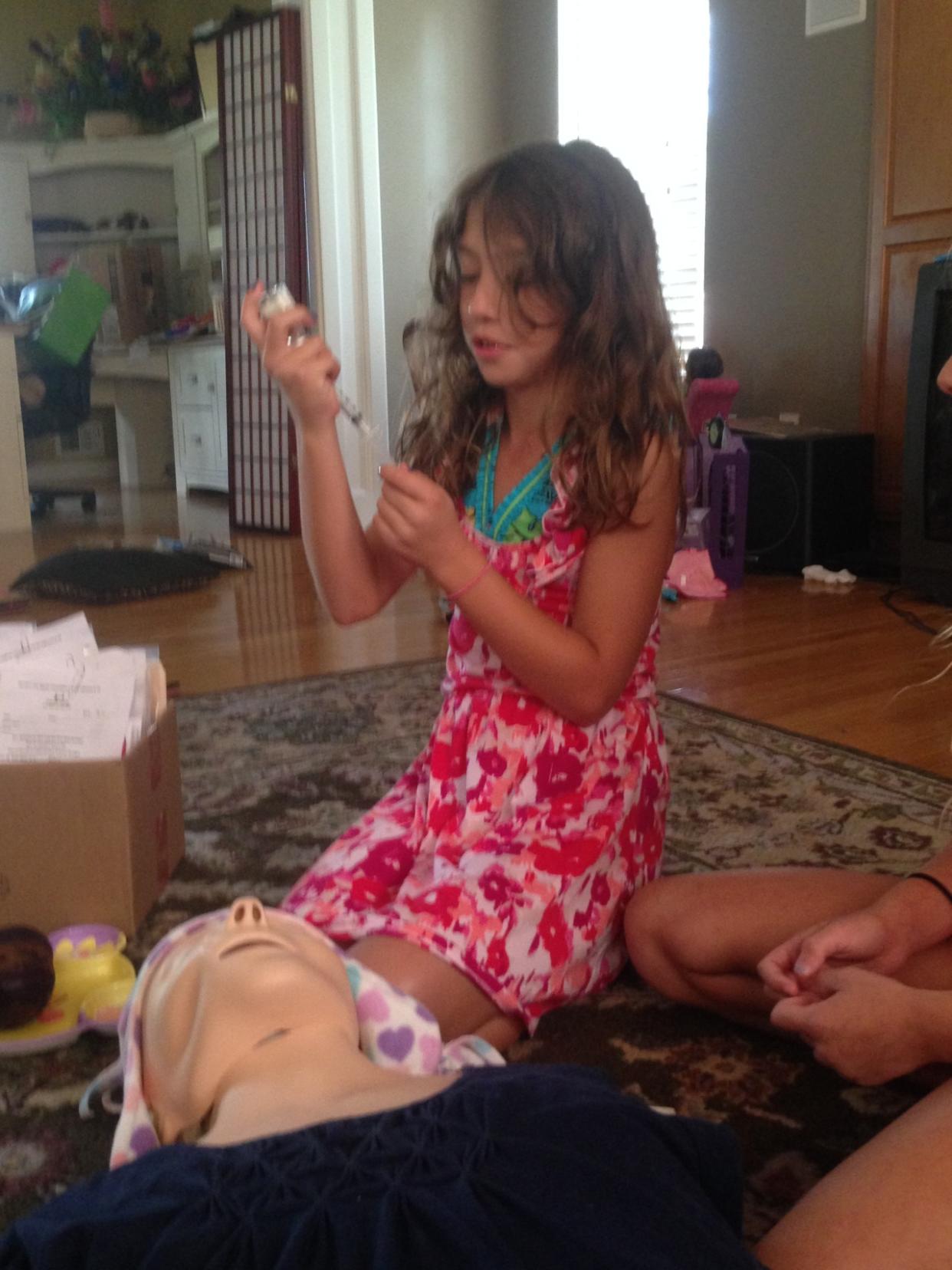Should Kids Be Trained to Treat Mom’s Heroin OD?

Having a heroin-addicted parent is something that young children should never have to experience — but many live with the reality right in their family, either through parents or older siblings. It’s why some adults are seeking to empower them in a controversial way: by training kids as young as 8 to administer a lifesaving substance called naloxone, which reverses the effects of an opioid overdose.
STORY: ‘Uncomfortable’ Photo of Family Shows Devastation of Heroin Abuse
“My daughter has heard me talk about the [adult] training I conduct, and one day she actually asked to be trained, just in case something happened to her older brother. And it hit me like a brick,” Jennifer Stepp, of Bullitt County, Kentucky, tells Yahoo Parenting. Stepp’s 25-year-old son has struggled with heroin addiction over the years, propelling her into the world of overdose-prevention advocacy. She currently leads the community-based Bullitt County Opioid Addiction Team, educating others like herself to be prepared to save a life, particularly through the use of naloxone, or Narcan, approved last year by the FDA.
Still, when her third-grader daughter (pictured above, with a training kit and dummy) asked to be trained, Stepp was initially leery. “But then I thought, well that’s great,” she says. “So I trained her and her friend, and then I wanted to expand because I know of other families affected [by addiction] just like she is.”
STORY: Should You Smoke Pot With Your Teenager?
And so, on Nov. 21, Stepp will teach a group of other youngsters to use Evzio, a device, similar to an EpiPen, that administers a single dose of naloxone. A spokesperson for Kaleo, which manufactures Evzio, confirms for Yahoo Parenting that they shipped the training kits to Stepp, noting that the company gets daily requests from groups around the country.
Though it’s not exactly common, similar training for young people has taken place around the state and around the country. In May 2014, according to the Cincinnati Enquirer, the nonprofit Mentoring Plus of Northern Kentucky trained teenagers to use Evzio on a dummy.
“At Mentoring Plus, we know our kids are living in communities where substance abuse is rampant,” program director Robin Anderson told the paper. “For these kids, drugs are everywhere: their neighborhoods, schools, sometimes their homes. That is their reality, so they need the life skills required to live in and navigate that world — skills like what to do when their best friend or brother is having an overdose, as most of our kids know someone who has.” Other training for families, though it’s unclear if children have been included, has reportedly been given in communities from New Jersey and Massachusetts to Illinois and Oregon.
Heroin has re-emerged over the past decade, devastating communities across the United States. According to data from the Substance Abuse and Mental Health Services Administration, 169,000 Americans ages 12 and older tried heroin for the first time in 2013 — more than twice the number of first-time users recorded in 2006.
So while Stepp understands that the inclusion of kids is controversial, she’s not concerned with that. “Some say it’s ludicrous to train your child — that they should not even know about this and shouldn’t be put in a situation where they might have to rescue someone from an overdose,” she says. “But for those of us who believe in empowering a child to possibly save a life, we should be able to do so.”
And many experts agree. “Addiction really is a family issue, and so many of us struggle with how to speak about it to children,” Daniel Raymond, policy director for the national nonprofit Harm Reduction Coalition, tells Yahoo Parenting. “These trainings are a great entry point for families to have that conversation — the same way parents might speak with a child about a sibling with an allergy who might someday need to use an EpiPen. It’s an entry point to have a deeper conversation, especially for children, who may have been afraid to talk to anyone about [the addict in the family].”
Raymond, who’s heard it all from both sides regarding the harm-reduction model — particularly around needle-exchange programs, which have been the subject of serious controversy over the years — says he’s not witnessed such intense ire regarding the use of naloxone. “It’s been pretty refreshing,” he says. “The urgency of the overdose epidemic and the fact that it’s touching so many lives have led to more open-mindedness about it.”
He notes that the idea of training kids as young as 8 is still “cutting edge,” but that it’s a smart approach because while it’s certainly “extremely traumatic” for a child to witness a parent’s or a sibling’s overdose, it would be even worse if that family member were to die.
Paul Hokemeyer, a family and addiction therapist, concurs. “I can think of no better way to empower an 8-year-old than by providing them with the ability to save a human life,” he tells Yahoo Parenting. “This is especially true for children whose lives have been ravaged by the horrors of drug addiction, [for whom] life is tenuous, traumatic, and uncertain.” Moreover, he adds, “By learning about a solution, they are also learning about the problem — drug addiction — and children need to know early on just how serious the disease of addiction is.”
Stepp, who calls herself “just a person who wants to empower children and open up dialogue,” aims to get that message across — and help save a life in the process. “There are kids losing their parents. And once they’re dead,” she says bluntly, “there’s no chance of recovery.”
(Photo: Jennifer Stepp)
Please follow @YahooParenting on Facebook, Twitter, Instagram, and Pinterest. Have an interesting story to share about your family? Email us at YParenting (at) Yahoo.com.



